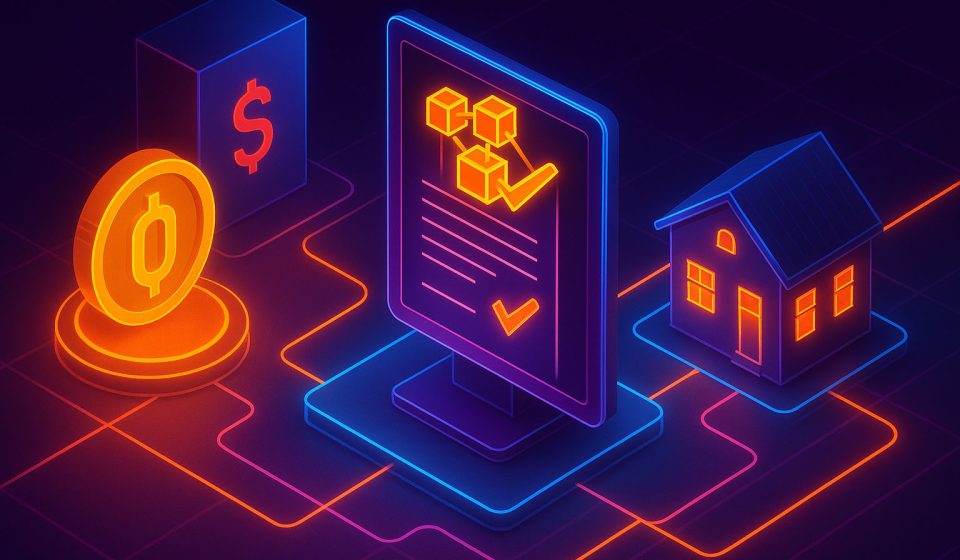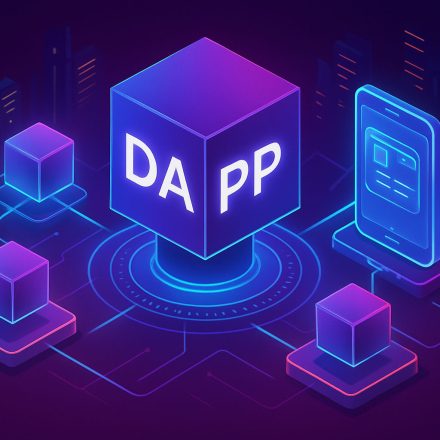
📑 Smart Contract Use Cases: From DeFi to Real Estate
Introduction
Smart contract use cases from DeFi to real estate have transformed the way blockchain technology is applied in the real world. Beyond simple cryptocurrency transfers, smart contracts power decentralized apps (dApps), automate transactions, and enable trustless agreements between parties without intermediaries.
Table Of Content
- Introduction
- 🔗 What Are Smart Contracts?
- 💰 Smart Contracts in DeFi (Decentralized Finance)
- Popular Use Cases
- 🎨 Smart Contracts in NFTs (Non-Fungible Tokens)
- Popular NFT Use Cases
- 🏠 Smart Contracts in Real Estate
- Use Cases in Real Estate
- 🌐 Other Smart Contract Use Cases
- 🚀 Benefits of Smart Contracts
- ⚠️ Challenges of Smart Contracts
- 🎯 Final Thoughts
- 🔗 Learn More
In this article, we explore the most exciting smart contract use cases across different industries.
🔗 What Are Smart Contracts?
Smart contracts are self-executing digital agreements stored on a blockchain. They run automatically when predefined conditions are met. There is no need for banks, lawyers, or third parties.
Learn the basics of smart contracts in our guide:
Blockchain Basics
💰 Smart Contracts in DeFi (Decentralized Finance)
DeFi is one of the most revolutionary spaces where smart contracts are heavily used.
Popular Use Cases:
- Decentralized exchanges (DEXs) like Uniswap
- Lending and borrowing platforms like Aave
- Yield farming and staking
- Decentralized stablecoins like DAI
Smart contracts in DeFi remove banks from the equation, allowing users to trade, lend, or borrow crypto directly from their wallets.
🎨 Smart Contracts in NFTs (Non-Fungible Tokens)
NFTs run entirely on smart contracts to guarantee ownership, royalties, and transfers of digital assets like art, collectibles, or gaming items.
Popular NFT Use Cases:
- Marketplaces like OpenSea
- Royalties for creators
- Gaming assets ownership
- Digital identity & memberships
🏠 Smart Contracts in Real Estate
Real estate is adopting smart contracts to simplify complex transactions and provide transparency.
Use Cases in Real Estate:
- Tokenization of property ownership
- Automated rental payments
- Instant transfer of ownership without middlemen
- Real estate crowdfunding platforms like RealT
Smart contracts enable fractional ownership, making real estate investment more accessible to everyone.
🌐 Other Smart Contract Use Cases
| Industry | Use Case Example |
|---|---|
| Supply Chain | Track product origins and delivery steps |
| Healthcare | Secure medical data sharing |
| Insurance | Automate claim approvals and payouts |
| Gaming | Ownership of in-game assets |
| Identity Management | Decentralized digital IDs |
🚀 Benefits of Smart Contracts
- Trustless transactions
- Faster and cheaper processes
- Immutable and transparent records
- Global accessibility
- Automation of repetitive tasks
⚠️ Challenges of Smart Contracts
- Coding bugs and vulnerabilities
- Lack of flexibility after deployment
- Legal recognition varies by country
- Dependency on oracles for external data
🎯 Final Thoughts
Smart contract use cases from DeFi to real estate show how this blockchain innovation goes far beyond simple token transfers. From reshaping finance to transforming real estate, supply chains, and gaming, smart contracts are unlocking new possibilities in every industry.
As blockchain adoption grows, smart contracts will become an integral part of everyday digital interactions.
🔗 Learn More
Internal Link → Blockchain Basics
External Link → https://ethereum.org/en/developers/docs/smart-contracts/














